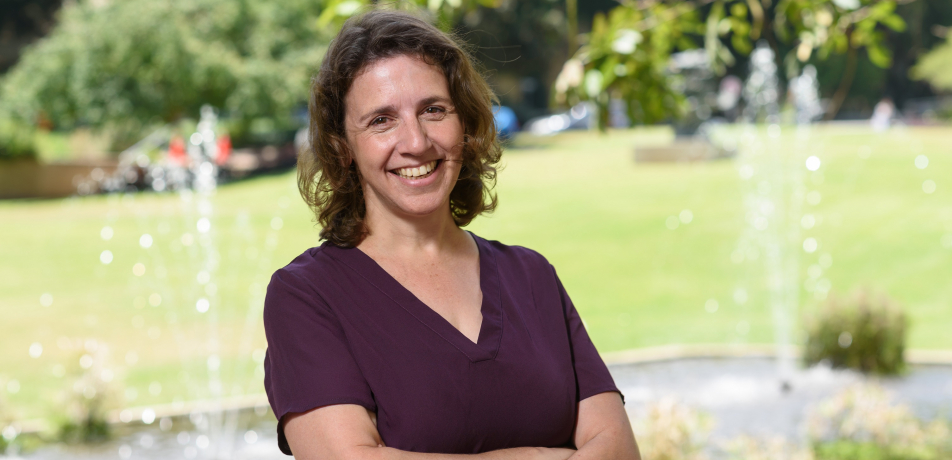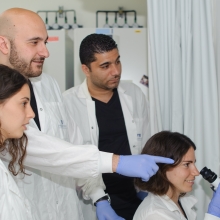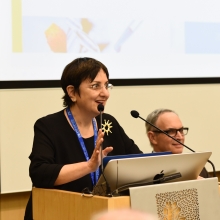Prof. Tamar Geiger
When it comes to cancer, proteins matter
New scientists

Trying to understand the diverse makeup of a tumor has kept scientists busy for decades. However, the majority of profiling methods used today to identify the components of a tumor are limited, as they focus primarily on the tumor’s genetic composition. While these techniques can detect a variety of genetic changes, the mutations they identify oftentimes exhibit little to no function. These methods therefore fail to accurately predict the cancer’s phenotype—the observable characteristics of tumor cells—such as their developmental process, biochemical and physiological properties, and behavior.
Prof. Tamar Geiger, who recently joined the Department of Molecular Cell Biology, is tackling these obstacles by studying the cancer proteome, the set of proteins that appear in malignant tumors. Since proteins dictate virtually every reaction in the cell, they are directly responsible for all observable cellular characteristics in health and disease, making them an important piece of the cancer puzzle.
Proteomics research is therefore critical for understanding cancer phenotypes and gaining a holistic view of the disease’s biology. Using deep single-cell analysis to characterize the proteins responsible for the phenotypic diversity in tumors, Prof. Geiger is unearthing the mechanisms that drive cancer progression and drug resistance, and identifying potential therapeutic targets for various cancers.
Earlier in her career, she pinpointed a particular enzyme as a potential therapeutic target in aggressive, chemo-resistant breast tumors. She also analyzed the protein populations in hundreds of breast tumor regions and hundreds more samples of supporting tissue. Her research revealed major proteomic differences between regions within the same tumors that display dissimilar phenotypes, irrespective of their genomic landscapes. She also performed similar studies on melanoma patients, comparing the protein layers of those that responded to immunotherapy treatment to those that did not.
Up next for Prof. Geiger: investigating this diversity of cancer proteins and the implications of the diversity via new technology that can analyze tumors on a single-cell level, offering, it is hoped, an even more detailed picture of melanoma and breast cancer, and their respective responses to immunotherapy. This work may also lay the foundations for studying other cancers that are routinely treated with immunotherapy, such as lung cancer, bladder cancer, head and neck cancer, and renal cell carcinoma.
Biosketch
Prof. Tamar Geiger earned her BSc (2000) in life sciences and her MSc (2002) and PhD (2007) in biochemistry from the Hebrew University of Jerusalem. After completing her postdoctoral fellowship (2011) at the Max Planck Institute of Biochemistry in Germany, she returned to Israel where she worked at Tel Aviv University, first as a Senior Lecturer and then as an Associate Professor. Prof. Geiger decided to continue her cancer proteomics research at the Weizmann Institute, joining the Department of Molecular Cell Biology in 2021.
In 2002, Prof. Geiger won the Rector Prize and the Polack Prize for Excellence in Studies and Research. She was also awarded the Rector Award for Excellence in Teaching in 2018, the Faculty Award for Excellence in Teaching in 2019, and the Rappaport Prize for a Young and Promising Researcher in 2020.








